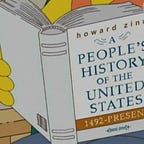Covering Islam by Edward Said
I don’t know much about Islam but I do know that the media portrayal of it is at best ignorant and poorly researched, but quite often it’s purely deceptive. This book explores why this might be the case and what the impact is. Edward Said is a fine example of an intellectual trying to make sense of the world and this particular foray analyses culture, identity and representation of the “Muslim world” in a manner that has the potential to help people in reexamining their perception of Islam rather than just eating up what we are served on the news. As this book was written in 1981 it frames the discussion around Iran and in particular the media shitstorm surrounding the hostage crisis which made the most of an opportunity to present Islam as synonymous with certain acts. Typically this would be put across by “experts” speaking for Islam unchallenged or within the confines of what is considered to be acceptable debate. Although written in the era of Rubiks cubes and Iron Maiden the points resonate just as much now with BBC talking heads using plausible yet incorrect or misleading explanations to frame an issue as Us versus Them. The propagated image becomes the most prevalent and eventually reinforce itself in the eyes of the public.
The alleged authoritative voices on the “Islamic world” from Britain, France and now the United States speak from a position that attempts to exert influence, even in a “post-colonialist” world the opinions inevitably have a colonial perspective. Like the system of colonialism itself, the opinions are imposed on the people rather than built on their experience. Said suggests that many views of Islam do not fit with what happens on the ground. Why is that Edward? I don’t want to speak for him, but he did write a book on the subject and from what I gather there is a tendency for academic institutions to serve powerful interests, rather than communities. Who would have thought?
This made me consider the value and purpose of historical knowledge. Can you really know a culture beyond your own experience? I don't think you can, and in many ways that has helped me to accept and understand the world. From a distance, you would struggle to accurately analyse anything, let alone a whole religion! On top of this, a lot of the analysis is not done in good faith, but rather to rationalise and legitimise the interference with the organic process of development. This is done to advantage the people doing the analysis from what I have seen during my long, long life. I’d rather trust in the people in a place to have an understanding of what is happening, everyone bringing their own experience and insight to the table. A good academic or journalist will take it all into account to develop a view of the world, this book suggests this often does not occur, as do my own experiences. Covering Islam was quite a dense read and I will continue to reflect on it, but the key takeaways for me were that knowledge should be sought and contested to get closer to the truth and harmful narratives that have become established as part of the conversation surrounding Islam should be robustly challenged by those with knowledge developed through rigorous material analysis.
